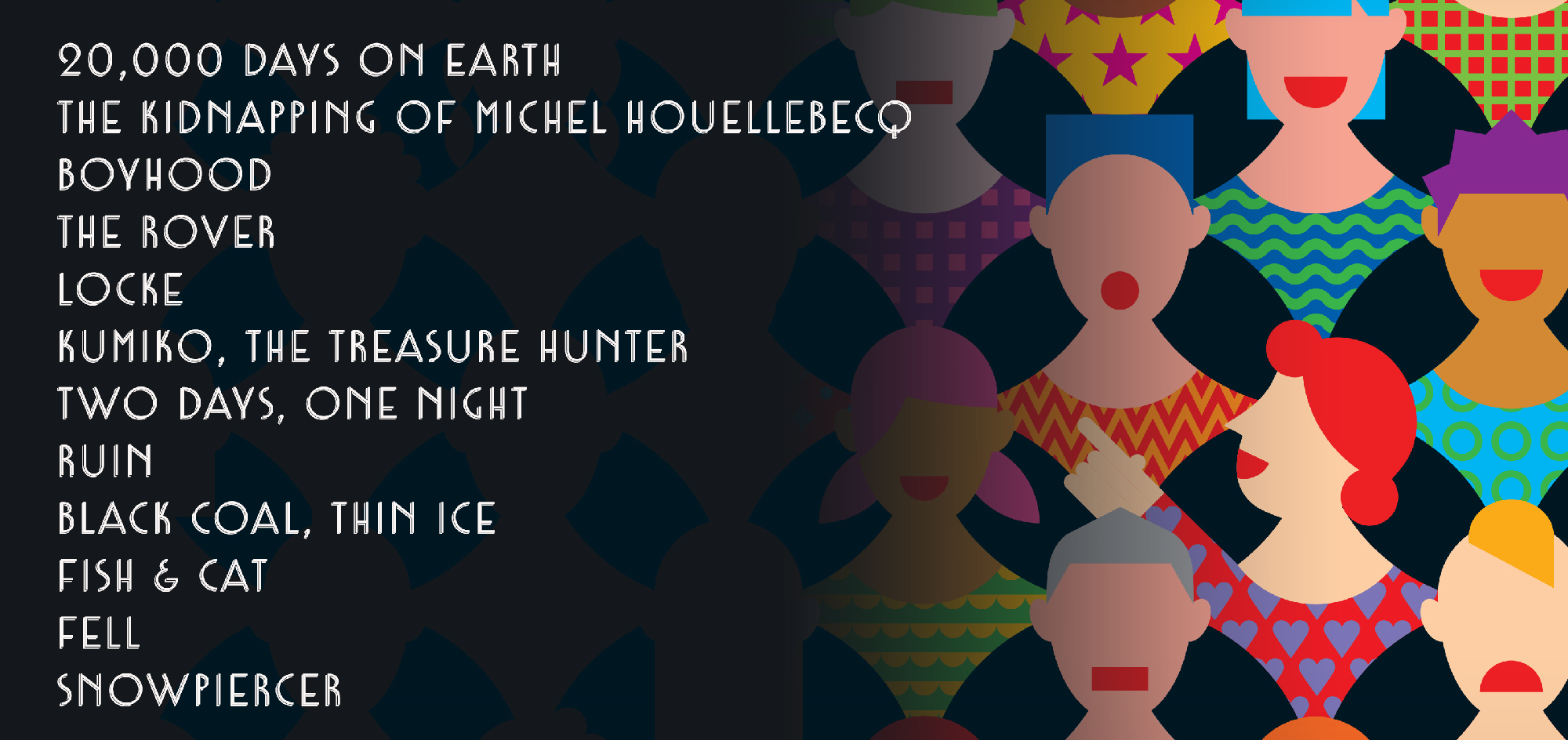In our Sydney Film Festival Official Competition Roundtable for 2014, we have gathered the writers on staff who have seen the most competition films to briefly look at each of them and then decide their favourites. The actual winner of the Sydney Film Prize this year is Two Days, One Night – yet, as would appear below, it would not have been our pick.
Participating in this roundtable: managing editors Conor Bateman and Jeremy Elphick, staff writers Imogen Gardam and Saro Lusty-Cavallari.
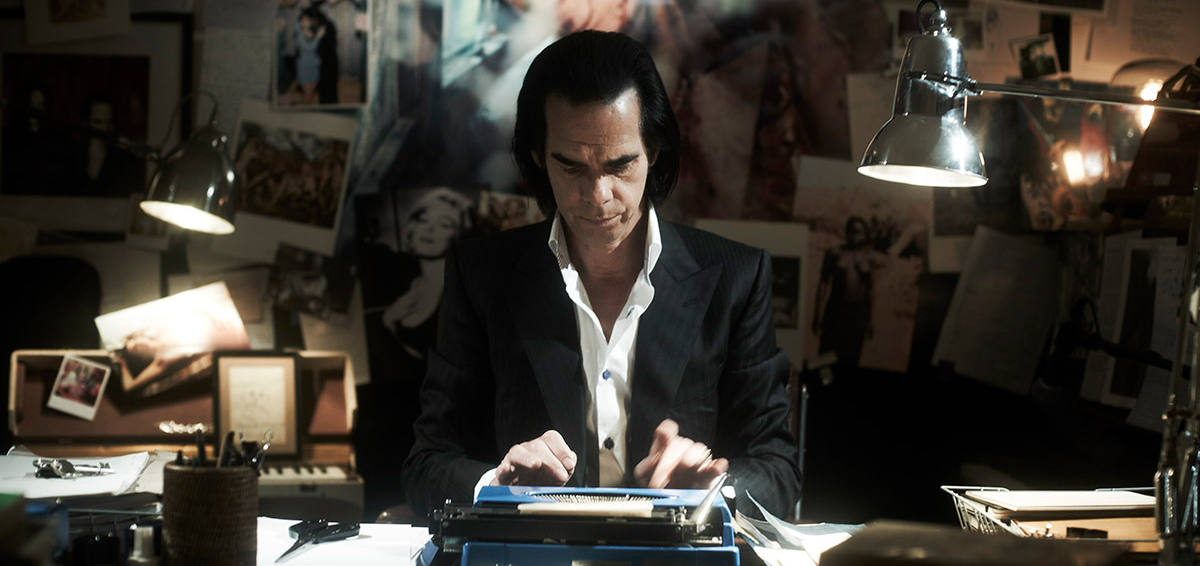
20,000 Days on Earth (dir. Iain Forsyth and Jane Pollard) – UK – REVIEW
Conor: Saro, I know you loved this one. I definitely felt like it deserved a place in the competition because of how innovative it is with documentary form, and of course Nick Cave is a very interesting subject. I think the film fell down at times, though, in musical sequences if you aren’t a Cave fan – he left me cold lyrically. As much as I appreciate it, dipping into hagiography undermined it for me at points.
Saro: Well as you know I was in love with this one and I feel like my own appreciation of Cave doesn’t need to be separated to critique this film. Yes it’s very much tied up in Cave’s artistry but that’s why I loved it so much. We see so many “transcendent” music docos (such as Searching For Sugar Man) that try and “elevate” the material by essentially not being about what justifies these films in the first place. I completely get how that may lock you out of enjoying it Conor but for me its just such a beautiful expression of an artist’s process and the life that fuels it. And for that reason it seemed liked such a perfect way to open one of the few cultural events Sydney gets. I can see why you felt it was hagiographic but I think that’s beside the point, we’re not meant to get some overarching look at Nick Cave as a man as an artist, we’re occupying his headspace. If this film is hagiographic then so is a Bad Seeds album.
Imogen: I haven’t seen 20,000 Days On Earth but I have to say it was good to see the inclusion of hybrid docos, not just this one, in the festival this year. If the competition is looking for “cutting edge” and “audacious” films, I think the inclusion of this expansion of the genre is entirely appropriate. It’s a nice change to see filmmakers getting away from the formula, and I think festivals like this should be the place that they start to get traction. We also saw The Reunion (not in competition), which seemed to tread the same grey space between fiction and documentary, in the festival this year. Of course, last year we had Stories We Tell, and Act of Killing in competition, which as docos did genuinely fascinating things with the form. This year the main competition just featured 20,000 Days on Earth in terms of docos, and even then it was more hybrid than doco. I’m really curious to see where filmmakers go with this form, but more so where audiences go with it. These films play with our expectations in a way that I haven’t seen recently, and it’s a refreshing break from the sort of formulas we’ve been conditioned to expect. I’m also interested to see the place for docos in the competition line-up going forward, and whether they get more or less play than they have so far.
Jeremy It’s definitely interesting to see a film like this ending up in the Official Competition. I didn’t get to make the documentary, but I’ve always felt Nick Cave has his place as an iconic – albeit flawed – Australian character. I think it’s interesting to see so many Australian films in the selection this year (this film, of course, isn’t from Australia, but the focus overrides that a bit, I feel), and I think on the whole, it’s a good thing. Australia’s cinema scene is a remarkably nuanced and conflicted environment – it’s made up of so much; it’s got an incredibly violent, intricate and confusing history and it definitely is still looking to define itself. I think placing a lot of Australian films into the Official Competition is something integral to supporting the growth and redefining of the industry; even if there seems to be a quiet acknowledgement that they often aren’t serious contenders.
Imogen: Absolutely, and I really do think festivals have a role to play in defining the national cinema, if it can be called that.
Saro: Still it sometimes felt like this was basically an ode to how detached from Australia Cave now is. They’re nothing but memories while Brighton is constantly thrown at us. It’s still important though.
Imogen: Yeah, it’s not so much a question of Australia as a subject, and more Australia as a presence in a lot of these films. It becomes a matter of how we look at ourselves from a lot of different angles, whether that’s in the periphery, with 20, 00 Days on Earth, or as a setting, like in The Rover . You get an even more complicated dialogue with “Australian-ness” when you consider Ruin, which is to some extent how the Australian gaze operates in different environments. When you examine it from the perspective, the official competition this year gives us a lot to work with.
Saro: Yeah that’s true and it was a refreshing perspective.
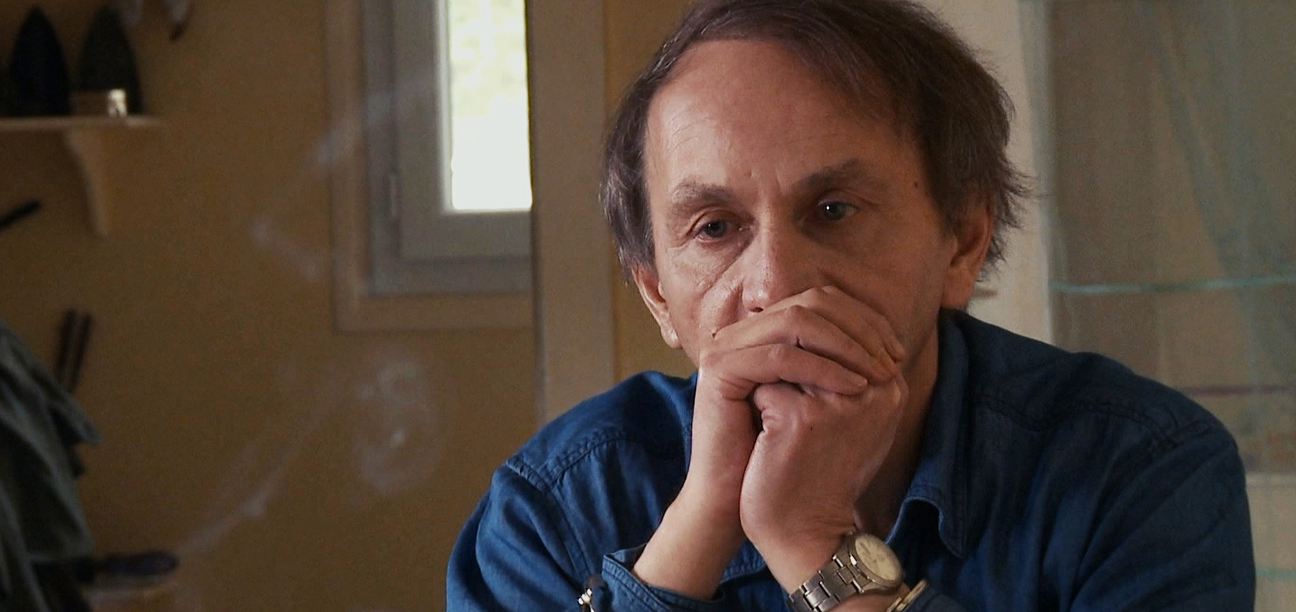
The Kidnapping of Michel Houellebecq (dir. Guillaume Nicloux) – FRANCE – REVIEW
Conor: Am I the only one who saw this one? I think it has been fairly divisive with regards to audience reactions because it is so easy to perceive it as indulgent. Of course it has to be on some level, because the film essentially explores the habits of a controversial French author through the guise of a kidnapping movie. Whilst not the best film in the comp, I certainly enjoyed it. I find Houllebecq to be a very amusing on-screen persona and I think the way it mocked the level of distance between writers and audiences and the notion of writers living in ivory towers was very enjoyable.
Jeremy This film had a very odd place in the Official Competition. It’s an interesting concept, and it plays out captivatingly and on the whole seemed to amuse the audience a lot. The question is “why?” with this one. There are a lot of “character study” films this year and whilst they experiment with how the character study is conducted, there are some serious flaws in the overall selection of which characters are being studied. Nick Cave, Michel Houllebecq, and the fictional Tom Hardy’s Ivan Locke are three of the four main figures assessed as the center of films in this years Official Competition – while they are all interesting characters in their own right – there’s a certain absence of diversity, which I feel the Official Competition should be trying to avoid. It’s interesting to see 20,000 Days on Earth, The Disappearance of Michel Houllebecq and Locke side by side because one is able to observe the similarities and defining differences of these films. Kumiko, the Treasure Hunter – which I didn’t get to see – seems to fulfil this idea, but at the same time, it feels like there should be more than a token character study breaking with a fairly tired trend. There are plenty of films, such as Desiree Akhavan’s Appropriate Behaviour that deserved a spot in the Official Competition a hell of a lot more than the film on Michel Houllebecq – thankfully, Akhavan’s film has managed to emerge from the non-competition selection as one of the festival’s most successful films. I still feel it would be a lot more meaningful to have had Akhavan’s film – which presents a narrative that examines the vicissitudes of race, gender and sexuality – than the film of a man who infamously declared that Islam is “the stupidest of all religions”.
Conor: I agree that Appropriate Behavior is great but it’s not a competition film. Kidnapping plays with reality, documentary and form in a mostly interesting fashion and I have no problem with it being in the comp.
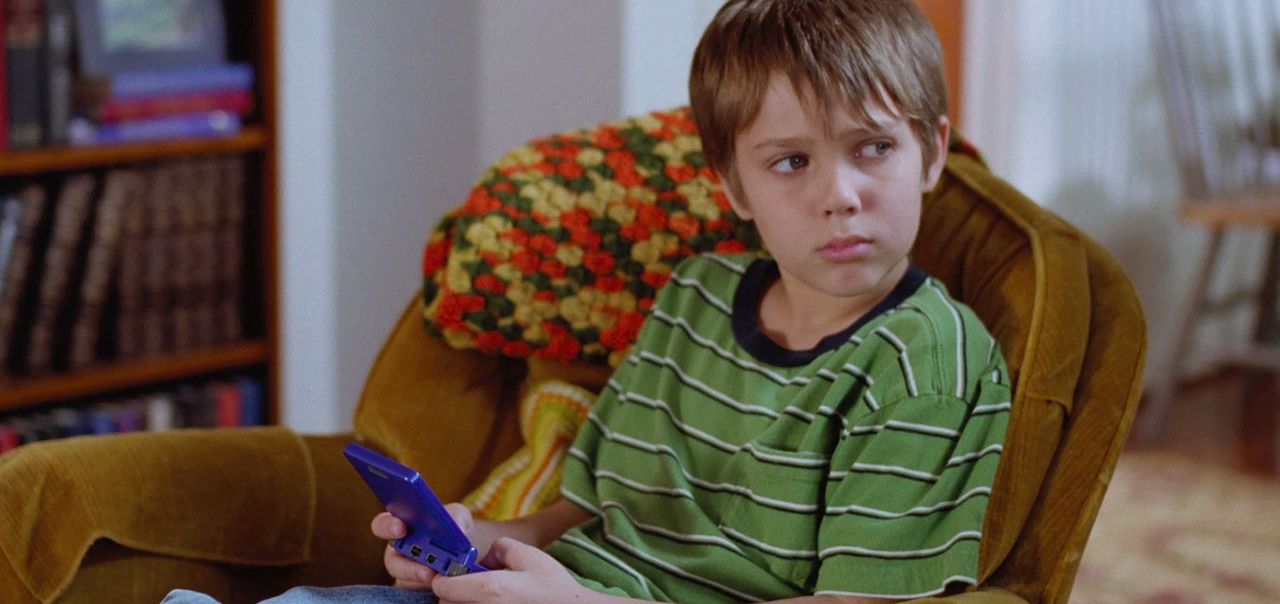
Boyhood (dir. Richard Linklater) – USA – REVIEW
Conor: This is my pick of the comp. Fairly easy for me to decide too. Only two films this year I have come close to loving and this is one of them. As a big fan of Linklater’s work, I think this film managed to be both an authentic depiction of adolescence (despite some broad strokes) as well as a reflection upon his own career. I mean, my review of it is me essentially fawning over the film, so it’s clear where I stand. What did you all think?
Saro: I’m not going to pretend to be the Linklater expert that you are but there was something that I noticed during Boyhood, which was that he seems to be struggling with whose story he was telling. After being a very seminal “youth” filmmaker he quite explicitly grew up last year with Before Midnight and I can see him struggling with whether he’s more interested in the parents and whether he can capture the 2000s the same way he captured past eras in Dazed & Confused and Slacker. Having said that I think Boyhood is amazing. It’s obviously propelled by its central gimmick but what a gimmick it is! Furthermore I found it hard to really analyze this film with the distance required because there were so many eerie similarities to my own life and it got strangely personal eventually. But ultimately what makes Boyhood great is that your inherent interest in watching this kid grow up allows you to enjoy otherwise insignifcant scenes. Linklater has finally found a way to make “life and life only” compelling on screen. It’s a shame it takes 12 years.
Conor: I mean it doesn’t best The Virgin Suicides in collective narrative storytelling as a conceit but then again, not much can. I was still very impressed with it. Also re: Before Midnight, I think there’s something to be said about the fact that he started Boyhood right around Before Sunset so that narrative shift is him growing as a filmmaker.
Saro: Very true and obviously they make for many comparisons. Though at the conclusion of the Before trilogy he found himself with more mature and perhaps more world-weary people where as the conclusion of Boyhood left him back at the start of his career with a wayward adolescent going into the world uncertain… actually now that I type that up it kind of seems a lot more powerful.
Imogen: I really loved this one. I’m a Linklater fan to begin with, but I don’t feel like this was a prerequisite to enjoy to film. I agree with Conor – I thought the ambiguity of the narration worked, and it really drew me in as a viewer. It’s such a sprawling film but it never felt long, it never lagged, and I never felt like I disengaged from the characters or their lives. It’s an incredibly satisfying film to watch with such a gentle ending – I almost felt like the final scene was going to continue. There’s never a sense of finality, or conclusion, and I love that. It takes quite a brave filmmaker to end on such a gentle note as well – that sort of thing requires very careful execution and can easily feel twee or contrived. Instead it felt like the narrative ebbed and flowed exactly as it needed to right up to the last black out. So the film keeps going in a way, but without us.
Jeremy I’ve never been a huge Linklater fan because I’ve never been a huge fan of narrative films, let alone things with “universal” “themes”. That said, it feels impossible to discard this film – I went in trying to be as critical as possible, and left with the worst criticism being “it’s pleasant.” This is definitely something worth watching and even more appropriate to sit in the competition. It’s something that summarises, wholly expresses, and legitimises Linklater’s career as a filmmaker. It’s his most comprehensive statement and it’s something that’s lovable despite it’s occasional flaws. Every now and then it felt like a soap opera, there are a few scenes I’d take out, but overall, I just wish it was a bit longer – I’m sure a directors cut will come out with the Blu-ray / DVD release of this film. That’s what I’m holding out for. That said, this remains one of the best films of the competition without a doubt.

The Rover (dir. David Michôd) – AUS – REVIEW
Conor: Ah the division on this one with regards to the final shot. Let’s not get into spoiler territory here and perhaps leave the question of the final scene to one side (read: the comments section of the review). I think Michôd hasn’t fully lived up to expectations with his second feature simply because he didn’t want to, which makes this pared back stylistic thriller a bit more exciting, for me at least. I found it mostly thrilling and I think it had some of the best sound design and maybe even the best original score in the festival. I’ll also flag here that I was very impressed by Animal Kingdom.
Saro: Look I don’t know if I even care about the ending anymore because on retrospect the film was losing ground fast in the last hour that I wasn’t invested enough to really be annoyed or pleasently surprised. There was an earnestnessss to Animal Kingdom that frustrated me and that’s true of a lot Australian films. After starting off with such a dream-like and mesmerizing opening that almost felt like it belonged in a Refn film (who is, coincidentally, the only two-time Sydney Film Prize winner) it was such a shame to see that earnestness return around the half hour mark. We get a plot, we get characters that we don’t need and neither of these things are done particularly well. The Robert Pattinson character was particularly irksome, and not because of his performance, but because the idea of saddling your world-weary and slow post-apocalyptic with a slow-witted travelling companion seemed unbelievably contrived. I didn’t have as high expectations because I never thought Animal Kingdom was that great to begin with but it seems particularly disappointing to cut down what could have been a masterpiece before it’s even at the halfway mark. I’ll agree with you on the score though.
Imogen: The Rover was actually my pick for the festival in terms of what I was looking forward to most, and for me, it was all about seeing how Michôd followed up on Animal Kingdom. I think the Blue Tongue collective are a really interesting example for how filmmakers can collaborate in the current film production climate, so I’ve always followed their work with interest. We can and will keep arguing about the value of that final shot, and I’ll just say that it was the one let down for me. Apart from that, I was incredibly taken with The Rover. I thought Michôd’s take on the apocalypse and “the collapse” was fascinating, and for me this was as much about the milieu of that post-collapse society as about more arbitrary things like plot. So to some extent I agree with Saro regarding the “earnestness” of the plot – I don’t think it necessarily added anything to the film, but at the same time, I don’t think it detracted from it either. The plot is ultimately just a vehicle for the exploration of the post-collapse world, and once you get past that, you get to some far more interesting questions about humanity in crisis and collapse. Everything about the way the world was built, from the score to the cinematography, and particularly Pearce’s performance, grabbed me, and I felt that Michôd excelled in not only eschewing “second album syndrome” and just doing the same thing again, but in creating a really captivating portrait of society in decay. The value of the plot, for me, more or less paled next to that.
Jeremy: I wasn’t able to see this one, despite it being one of the films I was looking forward to the most. The fallout around it seems to be a bit disheartening, but it’s difficult to follow up a film like Animal Kingdom, where a lot of its appeal descending from Michôd’s position before Animal Kingdom; unassuming, yet to make a powerful statement, and unexpected to. The Rover had all the opposite factors leading up to it – anticipation, Michod moving from criminally underrated to slightly overrated, and a much larger cast. Robert Pattinson is a great actor in some of his films, especially, in my opinion, Cosmopolis – that said, he doesn’t have a huge range as an actor and in the context of Michôd’s films moving away from Joel Edgerton and Jacki Weaver to Robert Pattinson is always going to leave a film worse off. I’m holding out criticism until I see this one, but if it’s true as Conor says that he doesn’t try to fulfil the audiences expectation of him living up to Animal Kingdom, then Michôd is all the better off for doing so.

Locke (dir. Steven Knight) – UK – REVIEW
Conor: My review kind of speaks for itself but I disliked Locke a lot. Ivan Locke is a dull central protagonist, as Jeremy said earlier. His struggles are torn from any melodrama then dressed up in a narrative structure borrowed from Buried. Shouldn’t be within an arms length of the official competition.
Jeremy Somebody commented that Locke makes some pretty powerful commentary on “white male privilege”. I feel the only palpable commentary it makes is on the meta-level in that it’s a film about white male dealing with his life collapsing directed by a white male that somehow landed in the Official Competition. I guess this comes back to the point I was trying to make before – there’s not a sense of innovation or interest in Locke – it’s not nuanced, and it feels like it exists to please an insatiable establishment.
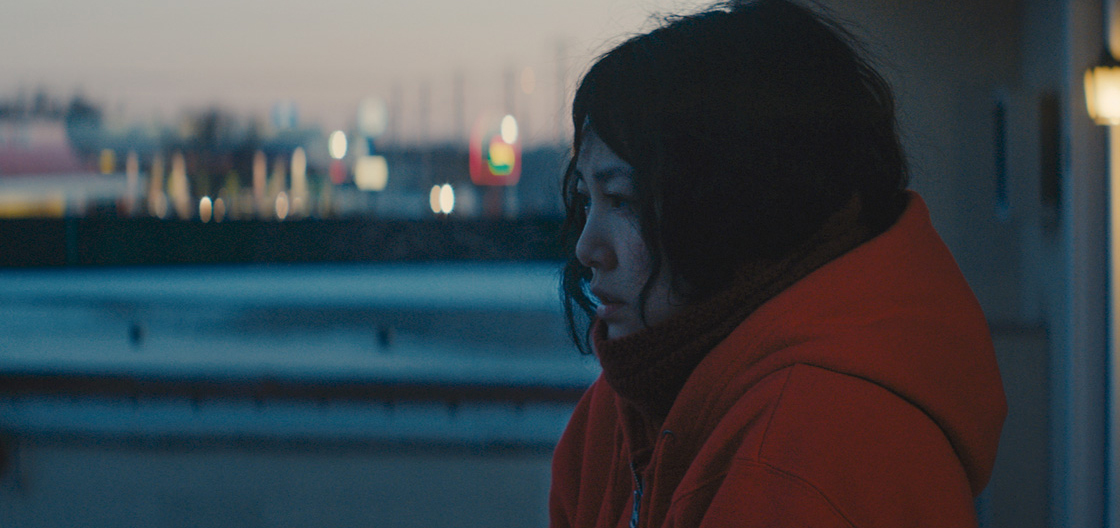
Kumiko, The Treasure Hunter (dir. David Zellner) – USA – REVIEW
Conor: I liked this one a lot, very creative approach to metatextuality and a bittersweet character study rolled up into one. I know Saro, you hated it?
Saro: Oh man this one rubbed me the wrong way. Look I can appreciate that it just happens to hit on a lot of the things that I find tired so I’m not completely baffled by how people liked it but it was still one of the most frustrating moments of the festival. Before I get into my more specific issues the overall problem with Kumiko for me was that it was unbelievably dull. It takes its sweet time moving from scene to scene with a character that is near impossible to empathize with and frequently composed with these arduous static shots that are usually there to set up a punchline (i.e. Kumiko exits frame then reappears to do something strange). But what I hated so much was that tonally the film was very cute and snarky while really being quite horrific. Its essentially composed of a series of vignettes, Kumiko interacting with odd little characters and being unable to interact with them and then the audience has a chuckle and we move on. It’s an approach that I feel is pretty much lifted from the Coens’ (it’s not a Fargo homage it just feels like an influence, conscious or not) but while the Coens’ may be cruel to their characters they don’t make a 2 hour joke that is basically at the expense of a severely deranged and despondent woman who can barely speak and wanders off to her death. All I heard in Kumiko was the odd chuckle between the occasional yawn and those chuckles are entirely at her expense. And before you say that cinematography redeems it; that’s only because it’s just recreating Fargo, which isn’t that amazing to begin with.
Imogen: I wanted to like Kumiko so much, so for me, a lot of my disappointment in this one came from the fact that I was so prepared to enjoy it. It’s just such a great premise to start from, and has to opportunity to create this very cool dialogue with how we interact with texts, films and fantasy. Particularly with the film screening in a festival, which is essentially a whole week of escapism. But I couldn’t relate to Kumiko at all, and I feel like if we’re going to spend that much time with her and her fantasy, I have to be on her side. I certainly didn’t hate it as much as Saro, but I really found that I had no way into Kumiko’s world.
Conor: Yeah, Saro, I completely disagree and feel like you either missed the point of the film, in thinking it makes fun of her, or have approached it as Coen hagiography, which it is not. I think the Zellners did a wonderful job adapting the urban legend and peppering in references to it through the character of the deputy. Imogen, I can see the distance you’re talking about with regards to character empathy but for me it was no trouble whatsover. The notion of devoting yourself to something creative as a means of escape from reality hits home pretty hard for me. I think Kumiko works on so many levels, whether it be through its cinematography – not just referencing Fargo but also successfully making American feel like an alien landscape (a pretty mean feat for filmmakers most associated with intimate Texan narratives) – the superb score or even as a commentary on the nature of transitioning from VHS (dreams) to DVD (sharper reality). I get the sense as well that it will grow on repeated viewings. Kikuchi kills it too.
Imogen: I agree that the idea of creativity as an escape from reality is an incredibly poignant and important part of the film – this is my issue. I wanted to understand Kumiko’s escapism because I think as audiences we’re inherently capable of following her. I wanted to really get to the bottom of her affinity for Fargo, but I never felt like I got there. With that missing, I was cut out of her whole journey to the US and her quest to find the treasure. I will agree to Kikuchi was amazing – she was at times the only thing that got me through.
Jeremy I’m going to stay out of this one as I didn’t catch it since it clashed with Concerning Violence. That said, I do like the concept behind this film as exploring the intersection between real events and the fiction that they can be inspired by and inspire. It’s a fascinating concept and I’m honestly excited to see this.

Two Days, One Night (dir. Dardenne Brothers) – FRANCE – REVIEW
Conor: I’ve seen two of the Dardennes’ films and been sorely underwhelmed each time. I find their approach to narrative simplistic (and not in a clever way, in a ‘platitudes and handheld camera’ way) and I think they telegraph the themes of the film early and do nothing of note with them. I also have major reservations with a film that dictates emotional response by structural conceit – the very concept that she has to ask people to find their humanity twelve different times means that often the film resorts to oversimplification and triteness. Again, I will say that I know I am in the total minority on this one. The adoration of the Dardennes baffles me generally, so I’ll keep my views brief.
Imogen: I know we disagree on this one, Conor. For me, Two Days, One Night was incredibly beautiful and knowingly small. I can absolutely recognise your reservations with it, and to some extent I came across them myself while I was watching it. The difference for me was Marion Cotillard, and her performance. Yes, we had to watch her make the same argument over and over, we had to watch her reiterate that it was her boss, and not her, that was forcing them into this position. But it was never one-note. Cotillard managed to capture the emotional journey of someone who has to repeatedly ask people to find their humanity, without necessarily wanting to herself. She’s grappling with her own internal struggle to keep it together while trying to engage in a moral debate with twelve colleagues whose own survival is equally at stake. I loved the simplicity of the framing – the Dardennes essentially chose a subject that they know best, and shot it in the way they know best. That naturalist, realist camera strips everything away, leaving no technical trappings between us and Cotillard. This was what made the difference for me – this could have been a very boring story, but I felt deeply invested in Cotillard’s character and with that, the film.
Saro: I can see where you’re coming from Conor and in many ways this is a very forgettable film. I don’t say that to be mean, I’ve frequently had to remind myself I even saw this one, sandwiched between the intense hatred of Kumiko and Ruin. Having said that it’s a superbly constructed minor work and I can appreciate it’s skill. The repetition of it really sold the banal qualities of what is a very melodramatic construction. Dialogue gets repeated verbatim between visits because there’s a part of Cotillard’s character that just wants to give up and I always felt like I understood that impulse. As little impact as it made on me overall, I felt like I was with her for the entire film; I understood her strongest moments and I never judged her for her weaker ones. The one thing I disagree on is the camerawork. Yes it’s subtle but there’s a very skillful elegance to the way it weaves around the space, capturing characters unobtrusively as the naturalism unfolds. This kind of earnest realism isn’t my kind of film but I can’t deny that it was done well.
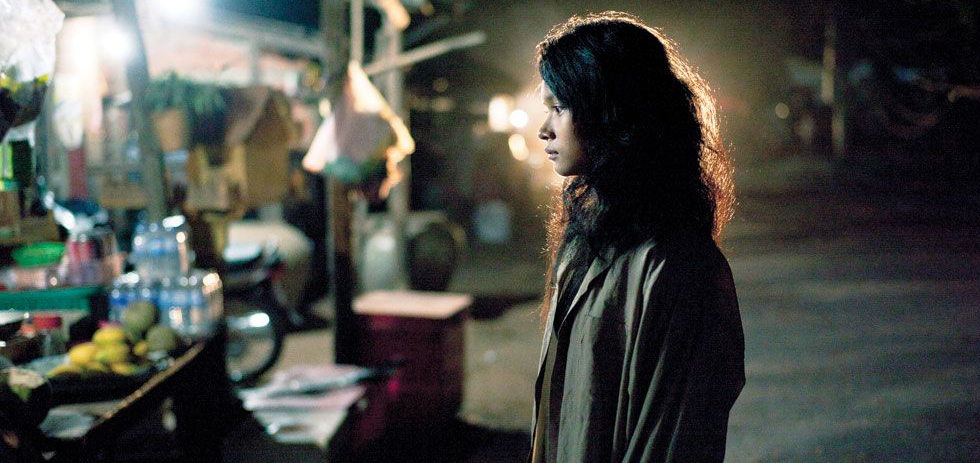
Ruin (dir. Michael Cody and Amiel Courtin-Wilson) – AUS/CAMBODIA – REVIEW
Conor: Perhaps the less said of this one, the better. I didn’t dislike it as much as either Saro or Imogen but I came close. I found its narrative a paper thin Natural Born Killers/Bonnie and Clyde, its characters poorly and broadly drawn and its attempts to supplement narrative with ‘dream’ sequences mostly unsuccessful. Feels like it thinks it is saying or doing something of note. It isn’t.
Saro: Look I say I hated this one but yeah it’s not a passionate hatred I was just underwhelmed to the point of wanting the last ninety minutes of my life back. I found the cinematography so unbelievably unwelcoming and distancing. I can do without narrative, I can do without characters but for God’s sake at least give me something to look at. The fact that characters obfuscated the screen or the entire frame was out of focus spoke to how little Ruin seemed to care for it’s audience; making it was probably way more fulfilling than watching it. I can appreciate anti-aesthetic aesthetics but there seemed to be no rhyme or reason here; just a cavalier approach that left me cold. The gender politics were also royally screwed up but I was so unengaged with everything I could barely get angry.
Imogen: I had this moment when watching Ruin when I realised that the gender relations and politics deeply rooted in the narrative should really offend me and make me genuinely angry, but I couldn’t muster the interest or energy to actively hate it. That was basically my experience of this film. I was so bored by it I couldn’t even engage with it to hate it. I know Jeremy liked it, and I can appreciate a lot of the reasons why – your review actually opened up some different sides to the film for me that I definitely didn’t connect with at the time. In terms of my viewing experience, I couldn’t like it, couldn’t hate it, couldn’t even to objectively examine its politics. I just felt like I was watching blurry close ups of obscured images for far too long, both in the narrative and the cinematography. I felt tangible relief when the credits rolled.
Jeremy: I’ve found it difficult to actively hate a lot of films this festival, and I guess I fell on the other side of the coin as the rest of the staff with Ruin. I enjoyed this film. I didn’t love it, nor do I think it’s a masterpiece, but I went in with a desire to appreciate it and came out of the film with it. I addressed most of what I think of the film quite meticulously in my review of it, but I think in the context of what I’ve been saying about the Official Competition here there’s a bit to add. I feel that Ruin is something that can be viewed as a good choice for the competition by someone who could simultaneously hate every aspect of it. There are issues in the film with portraying Cambodia as it is portrayed, yet at the same time, I fall on the side of thinking this was simply the tone the film took – not something intrinsically exploitative. Take for example The Rocket, set in Laos, directed by Kim Mordant – an Australian director. It doesn’t exoticise the country, and takes a very consultative approach with the area in which it filmed. There are historical issues with presenting South-East Asia in the depressive light that Ruin does, but The Rocket presents a similar lack of nuance in something that I feel gets a lot closer to exotification than Ruin. I think both films don’t reach that point though, although I think it’s essential to ask these questions. On the whole, I feel that Ruin has a place in the competition because of several features – which many would argue are not holistically achieved, yet I believe this is what the competition should differentiate. Firstly, the film showcases two astounding performances from Cambodian actors – something that shouldn’t be discarded in creating an Official Competition that is broad and inclusive. Secondly, the film experiments and moves through many incarnations – while this is never fully achieved, while it sometimes results in cliche or overdone shots – this, in my opinion, makes it a lot more deserving of a spot in the Official Competition than many other films that made it; even if it isn’t anywhere near a masterpiece.
Saro: Ruin has every right to be in the competition, more so than Two Days, One Night which is in my opinion a vastly superior film. I won’t harper on about my issues here but I will close out with the interesting (perhaps) coincidence that the two films I disliked most intensely were both made by Western directors working in Asia. I don’t think that either film suffered from particularly offensive imperial gazes but there’s definitely something to that connection even if I’m not exactly sure what it is.
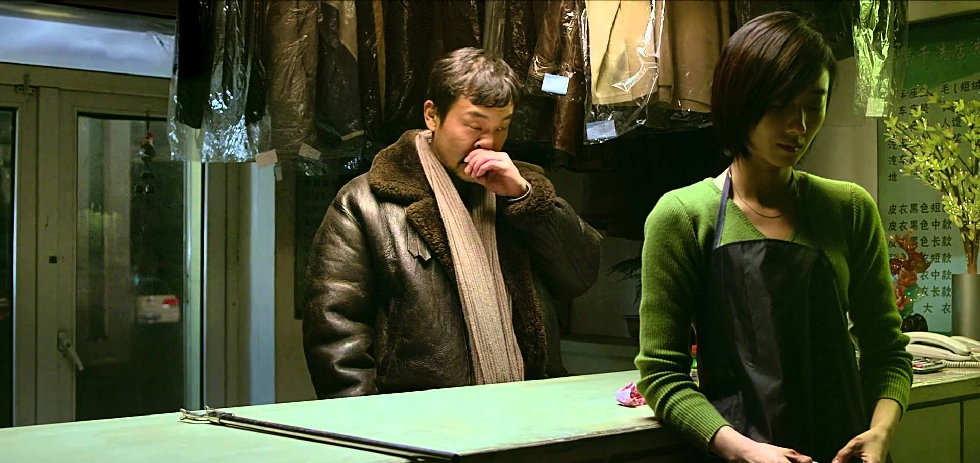
Black Coal, Thin Ice (dir. Diao Yinan) – CHINA – REVIEW
Jeremy When I engage with a film, I feel I have an instinctive approach to fawn over the aesthetic element. Often, this does override a lot of criticisms I might have of the plot. Black Coal, Thin Ice is a film that has some serious flaws in the plot department, and that brings it down to a high “recommended” from me – but I think the intersection of plot and “everything else” should be addressed, especially in reference to this film. I’ve heard an argument that “all the films in the Official Competition should be shot well” and I think this is ridiculous. It’s an argument that has an assumption that the difference between every competition film is going to come down to plot. It’s easy to discount Black Coal as a “beautifully shot film” before saying “but”. I think the filming of Black Coal, Thin Ice is a lot more sublime, a lot more intricate and has far more to it than simply being beautiful – I think it defines the film. Diao Yinan has an incredible depth of frame in the shots in this flick, there’s an incredible complexity to every frame that I had to rewatch to really get. The industrial is of particular fascination in this film, and Yinan’s presentation of it – for me – was something that really created a lot of what I loved about the film; a visual metanarrative – a parallel story of sorts – of intense loneliness, thematic isolation, and something intimately personal to Yinan’s own time spent in Xi’an. When I spoke to Yinan he spoke of the industrial as having a type of beauty and this having a strong relationship to humanity. When he mentioned that “a person from an industrial background can also see the loneliness it creates”, it definitely changed the way I assessed the film.
Conor: Bong Joon-ho’s Mother has set unreasonable expectations for me with regards to the plotting of crime films. Black Coal, whilst beautifully shot and containing some brilliant scenes and editing work, not only ends up being a fairly one-note plot sans effective character development, it also undercuts all of its tension in the middle of the film, undermining the very genre it is placed vaguely within. I say undermine as opposed to ‘breaks from’ or ‘transcends’ because I don’t really think it does that. Its references to Lynch, The Third Man and Breathless were all appreciated from me but I don’t necessarily feel like they were much more than head nods. That said, I enjoy the film, but reservedly so. Will rewatch at some point, because Jeremy’s argument is persuasive.
Imogen: I have a deep love of and affection for film noir, and I felt that Black Coal, Thin Ice was a fantastic modern film noir. For me, film noir is also all about the milieu, or the world that it builds or destroys, the atmosphere that it evokes – I couldn’t care less about the plot, and in many cases neither could its writers. If you read Raymond Chandler or Dashiel Hammett, you quickly lose track of the plot, or at least I do. The main draw for me is the characters and their environment. I had issues with this film, and I can agree that it was very thin on plot and that what plot it had was regularly derivative and simplistic. A really well executed film noir will still engage on a narrative level – think about Double Indemnity, where the milieu perfectly complements a surprisingly driven narrative and an perfectly sustained sense of tension and suspense. So perhaps it won’t hold up to the greats. But I didn’t really care – like Jeremy, I can often get behind a film purely for its aesthetic. Black Coal, Thin Ice was mesmerisingly shot, and its sense of chiaroscuro was flawless. I felt that the film really effectively updated those film noir tropes and values, seamlessly fitting them into their new setting, which perhaps makes an argument for the universality of those themes. I wasn’t interested in trying to solve the murder before the characters, which is often the first point of engagement for crime films and thrillers. I was interested in seeing how the film noir concept of post-war masculinity worked in its new Northern Chinese setting, and whether there’s still a place for the cold, disengaged and disillusioned femme fatale for audiences that have already seen that so many times.
Saro: Black Coal, Thin Ice kind of played like The Rover in reverse for me. The first hour and a half was a well shot, intermittently engaging suspense story but it went into a completely different territory in it’s final third with some seriously surreal detours. Lynchian has become an overused term but the gradual overtaking of the coherent mystery film by a more visceral dreamlike quality really elevated the denoument after the mystery is supposedly revealed. I don’t want to give too much away but there a few specific moments in the film that will be forever etched in my mind. Also, as everyone has said, the cinematography is second-to-none but I like what Jeremy says about the extraordinary rendering of Northern industrial China being so inextricably linked with the film. To write off Black Coal, Thin Ice as superficial is missing the point. This isn’t the empty but pretty aesthetic of Only God Forgives, it’s a lived in and spectacularly realised world that really speaks for itself.
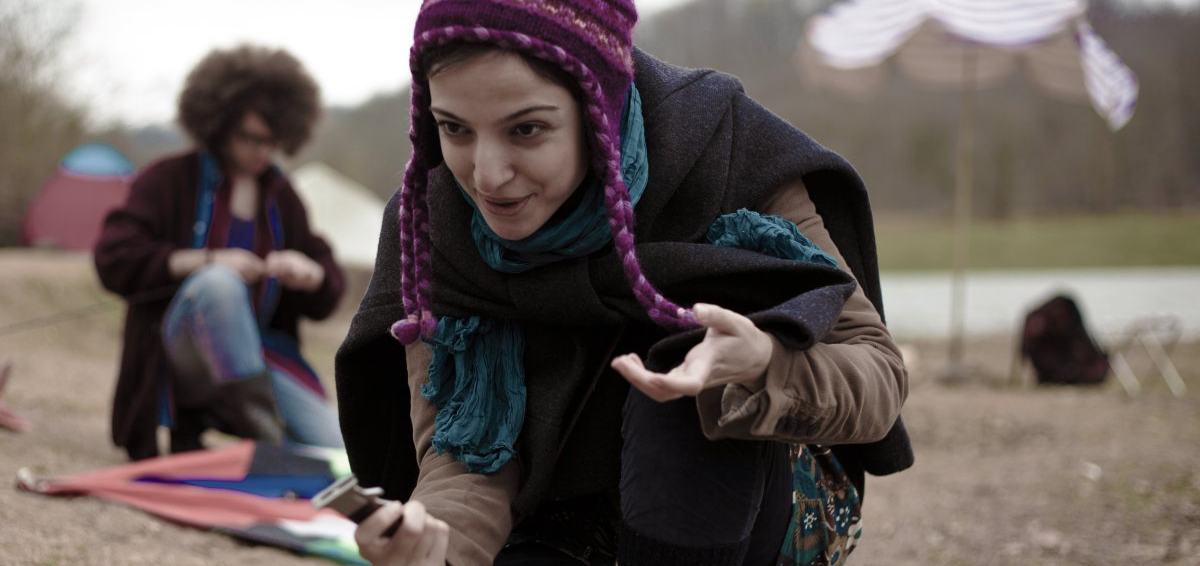
Fish & Cat (dir. Shahram Mokri) – IRAN – REVIEW
Conor: Mokri’s second feature is a fairly extraordinary narrative achievement, a 132min one-take noted but also in the way its narrative device of looping perspectives successfully deconstructs and deviates from the ‘slasher’ genre. Pick number two from me, I think it’s a very impressive film that will unlikely be seen post-festival but it may truly encompass the ‘audacious’ and ‘cutting-edge’ criteria of the competition. My review is a much more in-depth look at the film’s great elements.
Imogen: This is my number one film for the festival. On a purely technical level, it’s absolutely brilliant – the single take is beautifully shot, and the sound mix is almost flawless. But this isn’t even the best part of the film. The problem with one-take films, and I’ve seen this a bit recently in independent films, is that often you get so caught up in executing it technically that the narrative and characters get neglected – all wardrobe, no Narnia. Fish & Cat delivers on the plot, and then some. Mokri explained at the screening I went to that the narrative essentially works as a Möbius strip, with this seamless looping that draws you in, in the most unexpected ways. This is a film I want to re-watch and rewatch, just to experience the full breadth of its looping plot combined with a brilliantly deconstructed slasher starting point. Mokri also made the point that Iranian cinema is mostly known abroad for its realism – I felt like he could have reasonably said, for A Separation. This was just such a beautiful departure from that realism – I really loved the use of the one-take technique, which is kind of the epitome of realist cinema (there’s that sense that you can’t hide anything in a one-take scene or film), to embody such a mind-bending narrative. Unfortunately, we might not get to see this one again – I really want to see a post-festival life for this film, and it may get a home entertainment or digital release, but so far there doesn’t appear to be an Australian distributor. Fingers crossed, because this film has the longevity for multiple viewings and a cult following. I walked out of the cinema ready to sit through another 132 minutes. I agree with Conor, it fits the criteria perfectly, and it really embodied for me the sort of films you hope to discover in a festival line-up – surprising, groundbreaking and utterly captivating.
Saro: Oh man I’m not going to be able to do this one justice. It’s such an intelligent and engaging movie but also viscerally accessible. I was thoroughly exhausted by this point in the festival but by an hour into Fish & Cat I was glued to the screen. Imogen brought up the Möbius strip but I want to expand on that. It’s a cute description that get’s thrown around too often (most famously for one of my favourite films Mulholland Dr.) but this is truly the perfect description. A Möbius strip, like an Escher drawing, loops you back around to the starting point without you fully comprehending how you got there and this is precisely what makes Fish & Cat so striking. You understand what Mokri is doing but you can never fully understand how. It truly feels like a magic trick that leaves you feeling beautifully clueless in the best possible way. All this sounds like a flashy act of showing off but it’s an incredibly slow-building and subtle approach that always serves the film over flaunting Mokri’s talents. Even more amazing is, that for all its visual innovation, the script is written with an immense level of depth and sensitivity. Conor brought up Beckett in his review but it’s not just similar in style, it’s on par in terms of quality. As it stands Fish & Cat is the highest rated film on 4:3 and I couldn’t be happier about that. It is a glorious reminder of the things that an intelligent mind armed with a camera can do. Forget film of the festival this is the best film I’ve seen in a long time – since at least last year’s breakout festival hit The Act of Killing, if that.
Jeremy: Fish & Cat is a phenomenal film and does more with its medium than anything else this festival. I feel everything that can be said has been said by the three of you but I feel a lot of it needs to be said by the film itself. When I read that it was one shot I didn’t expect it to be as visually captivating and imaginative as it ended up. It’s an incredible movie. It’s definitely my favourite out of the Official Competition.
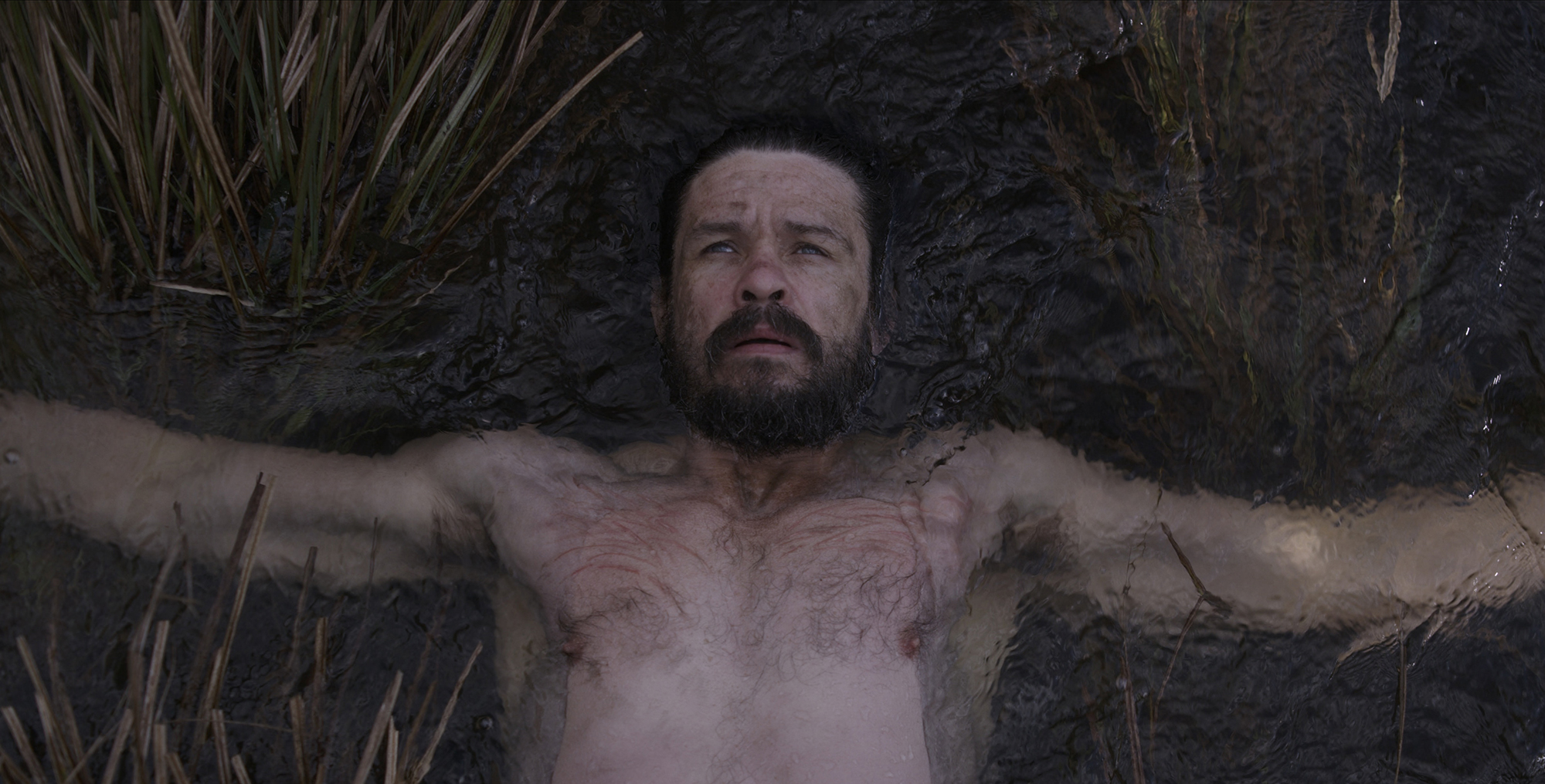
Fell (dir. Kasimir Burgess) – AUS – REVIEW
Conor: Christian’s review for us was a little too praise-filled, I think, but I can see what he saw in Fell, which, I enjoyed quite a lot. A well-shot and thematically focused first feature, it is something starkly different for modern Australian cinema, straddling the line between a character study and art-film. It’s this years For Those in Peril. The two lead performances are pretty stellar, Daniel Henshall and Matt Nable both crush their roles and allow the character-centric tension to mount at a bold climax, which unfortunately, doesn’t quite live up to the promise of the film as a whole. The end, as well as perhaps overly simplistic screenplay and motifs (like their lives essentially being mirrored at one point in the film) are what prevented it from being something brilliant. As it stands, though, very worthy of the competition and a very impressive feature debut from Kasimir Burgess.
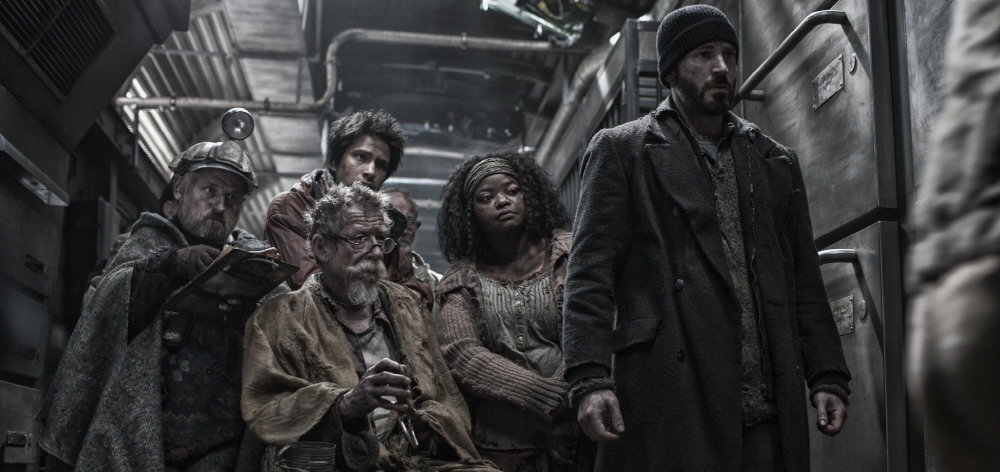
Snowpiercer (dir. Bong Joon-ho) – USA/SOUTH KOREA – REVIEW
Conor: I’m the only panellist to have seen this one at the fest and, speaking of Bong Joon-ho before, the quality of his filmography makes Snowpiercer all the more disappointing. My review of it is above, but in brief – the screenplay is terrible, the dialogue wooden, the characterisation very hit-and-miss and the visuals often engaging but the VFX is very poor. Director Bong couldn’t quite pull off the fight scenes in this one and its haphazard tonal traipsing is its undoing – especially when viewed in light of a mastery of that in Director Bong’s earlier The Host. I know that I seem to have disliked it a lot more than most of our writers, all of whom have uniformly given the film a recommendation, so that should probably be taken into account.
FULL RANKINGS
| Conor Bateman | Jeremy Elphick | Imogen Gardam | Saro Lusty-Cavallari |
| 1. Boyhood 2. Fish & Cat 3. Kumiko, The Treasure Hunter 4. Fell 5. The Rover 6. The Kidnapping of Michel Houellebecq 7. 20,000 Days on Earth 8. Black Coal, Thin Ice 9. Two Days, One Night 10. Snowpiercer 11. Locke 12. Ruin |
1. Fish & Cat 2. Black Coal, Thin Ice 3. Boyhood 4. Fell 5. Ruin 6. The Kidnapping of Michel Houellebecq 7. Locke |
1. Fish & Cat 2. Boyhood 3. Two Days, One Night 4. Black Coal, Thin Ice 5. The Rover 6. Kumiko, The Treasure Hunter 7. Ruin |
1. Fish & Cat 2. 20,000 Days On Earth 3. Boyhood 4. Black Coal, Thin Ice 5. Two Days, One Night 6. The Rover 7. Kumiko, The Treasure Hunter 8. Ruin |
